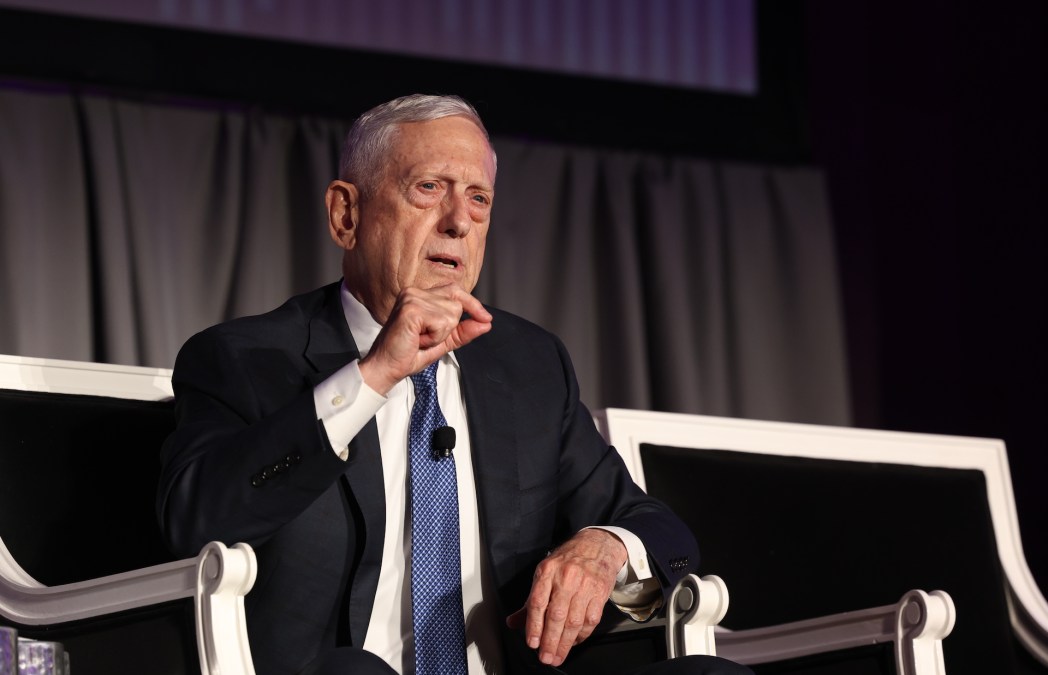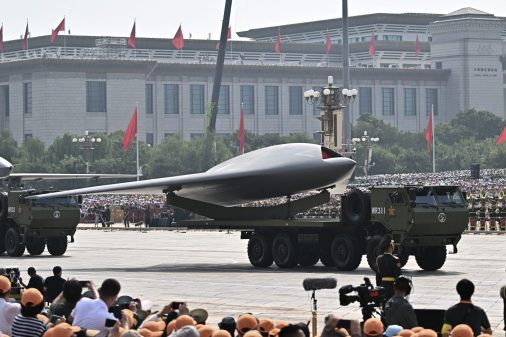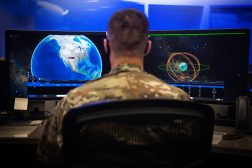Gen. Mattis on foreign influence operations: The US has never been ‘more vulnerable’

A former defense secretary gave a stark warning Wednesday about how vulnerable he believes the nation is to foreign influence amid the upcoming 2024 election cycle.
Retired Gen. Jim Mattis said during a special appearance at DefenseTalks, presented by DefenseScoop, that while election systems and voting infrastructure are perhaps the most secure they’ve ever been against cyberattacks, “the bigger problem and the one that I think that we are very vulnerable to right now is the influence operations.”
“When it comes to influence operations, I think I’ve never seen the country more vulnerable and a more lucrative place for the enemy to go after than right now,” Mattis, who led the Pentagon during the early part of the Trump administration, said in an on-stage interview.
Mattis pointed out that this isn’t a secret, with evidence of Russia and China in particular revving up their “propaganda machines,” not only targeting the U.S. but other democracies like France and Germany as well, with disinformation. And increasingly those adversaries are using advanced tech, like artificial intelligence, to boost those influence ops.
And yet, because of the divisive state of U.S. politics and culture going into the 2024 election, “we’re going to have people who are trying to increase the tribalism, increase the distrust between Americans. And right now with the level of ideological disarray in our country, in Beijing and Moscow, the leaders are cheering us on as we tear each other down and we use scorching rhetoric,” he said, adding that they will “take it to the limit of what they can do to make distrust between you.”
That said, Mattis has great confidence in the cybersecurity of the nation’s election infrastructure, saying he believes there’s a “99.9% chance” there won’t be actual meddling in the voting systems and that vote counts will be accurate.
Mattis also touched on the evolving domain of cyber within the U.S. military. While he wasn’t a fan of an idea that’s growing in popularity to split cyber out from the services and create a new, independent military branch to support it, he did call for the nation’s leaders to find a model that would give the Department of Defense and U.S. Cyber Command a bigger role in the case of a cyberattack on the homeland and its critical infrastructure.
Beyond that, he also talked down the notion that recent advances in technology have dramatically shifted the nature of defense and warfare, saying “the fundamental nature of warfare has not yet changed in the last 10,000 years.”
“The promise of these technologies is just enormous right now. And I’m no Luddite, I want the highest tech, the most reliable technology in the world,” Mattis said. However, he contended that “history would tell you that technology has not delivered ever with the promise it seems to, except perhaps with the nuclear weapons at the end of World War II.”
That said, he warned: “You have to stay alert with artificial intelligence and machine learning — that could actually change” things in big ways, though that remains to be seen.
Ultimately, regardless of the technology at hand — whether that’s the use of tanks in World War II or drones in today’s conflicts — the most important element is integration, Mattis said.
“You’ve got to look at technology as one tool in the toolbox. Take full advantage of it, but make certain you’re integrating it right. And that has to do with innovation, it has to do with the thinking, the education of the officers and NCOs in your military,” he said. “There’s a lot that goes into something like that, not just about technology alone.”






